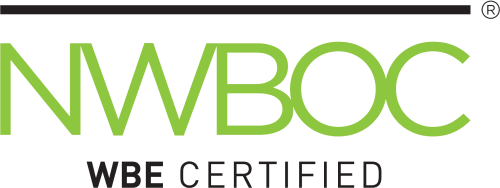65 Percent of Boston Workers Indicate the Availability of Coronavirus Testing Would Make Them Feel Safe Going Back to Work; About Half Want to Retain Remote Work Flexibility
More than One-Third of Workers Concerned About Changes to Their Work, Want Training and Professional Development to Re-Skill into New Roles
Boston, Mass., May 20, 2020 – Sixty-seven percent of Boston employees say they are worried about exposure to COVID-19 at their job, according to a new poll by Eagle Hill Consulting. Workers indicate that several factors would make them feel safe going back to work – the availability of protective protections like masks, gloves and hand sanitizer (68 percent); mandating employees with symptoms stay home (68 percent); and making COVID-19 tests available (65 percent).
Concerns among Boston employees about returning to the workplace are higher than worries at the national level, consistent with the fact that Massachusetts ranks third in reported cases across the U.S.
This research comes as Massachusetts is beginning to allow employers to bring employees back to their workplace in four phases and as many experts and policymakers say that jurisdictions lack robust testing programs that are required to enable employees to safely return. Additionally, employers may encounter problems acquiring personal protective gear for their workers, and there certainly will be increased costs for employers to protect employees.
In terms of what Boston employees would like as they transition to a post-COVID world, workers would like employers to continue transparency and open communication from leadership (52 percent); remote work flexibility (49 percent); greater acceptance of work-life integration (49 percent); and a continued focus on employee wellness efforts (47 percent).
“COVID-19 is perhaps the most significant business disrupter in modern history, and it is fundamentally changing the way we work,” said Jonathan Gove who leads Eagle Hill’s Boston office. “Our research indicates that employees have many deep workplace concerns – from their personal safety to how their jobs will change.”
“The challenge for employers is to manage this change in a productive and collaborative fashion, while also considering this an opportunity to repair or strengthen problem areas. Now is the time for organizations to revisit their operating model, employee and customer experience, along with training and skill development requirements to support new ways of doing business. Companies that make big picture strategic shifts and fully engage employees will be positioned to emerge stronger after the pandemic,” Gove said.
“Some good news from our research is that the vast majority of Boston employees (73 percent) have confidence that their employers can bring them back to work safely. But, that puts a big burden on employers to deliver. Employees want physical distancing, testing, protective gear and careful monitoring of the workforce. Delivering on these expectations likely will be challenging and expensive for businesses, so transparency, constant communication and employee engagement will be critical,” Gove explained.
“Importantly, Boston employees are significantly more concerned than the national average with the way their jobs will change in the near future. So it’s paramount that Boston-area employers are anticipating the impacts of the new ways of working while ensuring employees are trained and equipped to thrive in the new environment,” Gove added.
Key findings of the Eagle Hill Consulting Boston COVID-19 Returning to Work Survey are as follows:
- Sixty-seven percent of Boston employees say they are worried about exposure to COVID-19 at their job, higher than the national level of concern (54 percent).
- Sixty-two percent of Bostonians say that employers have the right to know if workers have tested positive for COVID-19, higher than national sentiment at 56 percent. Forty-three percent say employers have the right to test employees for symptoms.
- Most Boston employees (73 percent) say their employers will be prepared to safely bring employees back to the workplace, similar to the national sentiment (71 percent).
- More than one-third of Boston workers (36 percent) are concerned that COVID-19 will change the way they work, higher than national concerns (25 percent).
- Post COVID, employees would like organizations to continue transparency and open communication from leadership (52 percent); remote work flexibility (49 percent); greater acceptance of work-life integration (49 percent), a focus employee wellness efforts (47 percent), integrating remote work lessons learned (33 percent); and training and professional development to re-skill into new roles (32 percent).
- Fifty-five percent say they want COVID-19 testing available through their local government, 54 percent want it from their doctor, and 45 percent want testing via their employer.
- Only 16 percent of employees believe their jobs would be impacted by their test results, and few (16 percent) have concerns about how employers will use COVID-19 test results.
The 2020 Eagle Hill Consulting Boston COVID-19 Returning to Work Survey was conducted online by Ipsos from April 22-27, 2020. The survey included 524 respondents from a random sample of employees across the Boston metro area, polling respondents on returning to work amid the COVID-19 pandemic.
Eagle Hill Consulting LLC is a woman-owned business that provides unconventional management consulting services in the areas of Strategy & Performance, Talent, and Change. The company’s expertise in delivering innovative solutions to unique challenges spans across the private, public, and nonprofit sectors, from financial services to healthcare to media & entertainment. Eagle Hill has offices in the Washington, D.C. metropolitan area, Boston, MA and Seattle, WA. More information is available at www.eaglehillconsulting.com.
Media Contact:
Susan Nealon | 703.229.8600 | snealon@eaglehillconsulting.com | @WeAreEagleHill

